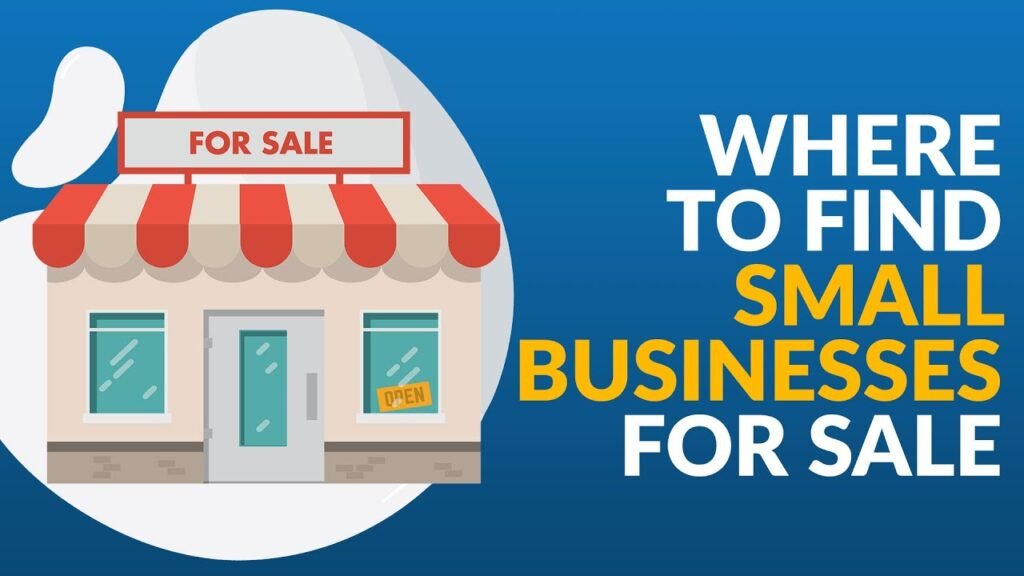This blog post guides aspiring entrepreneurs through the process of buying a small business for sale near you, using a step-by-step approach. It highlights common pitfalls, such as unreliable business listings and financial risks, and offers practical solutions to help buyers make informed decisions. From defining criteria and using reputable marketplaces to conducting due diligence and negotiating terms, this post equips readers with the tools they need to successfully find and purchase the best small business for sale near you.
Problem: Want to Own a Business but Don’t Know Where to Start?
Owning a small business is a dream many people have, but getting started can feel like an uphill battle. The search for a profitable, well-established business in your area can be overwhelming, with thousands of listings scattered across different websites. The stakes are high—choose the wrong business, and you could face financial loss, wasted time, and missed opportunities. Whether you’re a first-time buyer or an experienced entrepreneur looking to expand, finding the right small business for sale near you isn’t always easy.
Timing is also critical; the market changes rapidly, and the best deals don’t last long. You have to act quickly but with enough knowledge to make smart choices. And then there are the real hurdles: negotiating a fair price, understanding the business’s financial health, and making sure it fits with your personal and professional goals.
Agitate: Don’t Fall into Common Traps that Turn Dreams into Disasters
Buying a small business is full of potential traps. Maybe you find a promising café just down the street, but it’s been losing money for years. Or you’re eyeing a profitable landscaping service, only to discover it’s loaded with hidden debts. Skipping proper research is the top mistake buyers make. According to BizBuySell, nearly 30% of small business sales fail because of undisclosed financial issues.
Finding reliable data is another challenge. Many listings boast about “loyal customers” and “high sales,” but often these claims aren’t backed by hard evidence. Misrepresentation is common, especially among struggling businesses trying to offload quickly. Without careful evaluation, you could overpay for a business that’s barely making ends meet.
Even when you do find a solid opportunity, negotiating terms can be tough. A survey by the International Business Brokers Association found that 65% of buyers feel unprepared during negotiations, often ending up with unfavorable deals. And with ever-changing interest rates, securing the right financing adds another layer of difficulty. Without the right knowledge and support, the path to business ownership can turn from a dream into a financial disaster.

“Ready to own a business? Discover 6 essential steps to find the perfect small business for sale near you!”
Solution: 6 Steps to Find the Best Small Business for Sale Near You
Now that we’ve covered the challenges, let’s dive into the solutions. Finding the right small business for sale near you can be a rewarding process if you follow these six key steps:
1. Define Your Criteria
First, narrow down what kind of business you want to own. Are you interested in a restaurant, a retail store, a service-based business, or something else? Think about industry, location, price range, and profitability. For example, if you’re looking into buying a café, research local demand, competition, and seasonal traffic. Be realistic about what you can manage based on your skills, experience, and the time you’re willing to put in.
Case Study: John, an IT professional, initially wanted to buy a café but realized he had no experience in the food industry. Instead, he found a small IT support company for sale in his area. It had steady cash flow, loyal clients, and low overhead costs. By focusing on a business that matched his skills, John reduced his risk and started making a profit right away.
2. Use Reputable Marketplaces and Brokers
To find small businesses for sale near you, start with reputable marketplaces like BizBuySell, BusinessBroker.net, and LoopNet. These sites list thousands of businesses with details about financial health, asking price, and location.
Consider working with a business broker who knows the local market. Brokers can give you access to exclusive listings not available online and help negotiate better deals. They also perform thorough research, saving you from hidden financial surprises.
Fact Check: According to BizBuySell, over 70% of small business sales involve a broker, and buyers who work with brokers are 20% more likely to close a deal than those who don’t.
3. Perform Thorough Due Diligence
Doing your homework is crucial. Ask for financial statements, tax returns, and profit and loss reports for the past three years. Look closely at these documents to ensure the business is profitable and has room to grow. Be on the lookout for any red flags, such as sudden drops in sales or increasing debts.
Review the business’s customer base, supplier contracts, and staffing. Understanding these aspects will give you a clearer picture of how the business operates and what challenges you might face. It’s wise to involve professionals like accountants and lawyers to help verify the information.
Realistic Scenario: Sarah found a small retail store for sale nearby. The owner claimed the business made $250,000 annually. However, during her research, Sarah found that profits were shrinking due to rising rent and increased competition. She decided not to proceed, avoiding a costly mistake.
4. Negotiate the Right Terms
Negotiating isn’t just about lowering the price; it’s about setting terms that protect you. Discuss payment options, warranties, and agreements that prevent the seller from competing against you. A good deal might include seller financing, where the seller provides a loan to help cover part of the purchase price. This is helpful if you’re short on cash and need time to get the business up and running.
Stat Insight: The International Business Brokers Association reports that about 15% of small business deals include seller financing, making it a useful tool in negotiations.
5. Secure Financing
If you don’t have enough funds to buy a business outright, explore financing options. The Small Business Administration (SBA) offers loans specifically for business acquisitions, often with favorable terms. You’ll need a solid business plan and good credit to qualify.
Other financing options include personal loans, using retirement savings, or even crowdfunding. Each method has its pros and cons, so choose one that fits your financial situation and comfort with risk.
6. Close the Deal and Ensure a Smooth Transition
After negotiating terms and securing financing, it’s time to close the deal. Work closely with your legal team to ensure all contracts are clear and binding. Plan for a smooth transition by spending time with the current owner to learn the ropes. Retaining key staff members can also help keep the business running smoothly during the handover.
Success Story: After purchasing a car wash near his home, Mike spent two months learning the business from the previous owner. He kept the experienced staff, made some minor upgrades, and saw a 15% increase in revenue within the first year.
Conclusion
Finding the right small business for sale near you doesn’t have to be a complicated process. By defining what you’re looking for, using reliable resources, conducting thorough research, negotiating wisely, and securing the right financing, you can make your dream of owning a business a reality. Remember, it’s not just about finding any business—it’s about finding the right one that matches your skills, goals, and budget.
With these six steps, you’ll be well on your way to business ownership, creating financial independence and personal fulfillment. Start today, and you might just discover the perfect business opportunity right in your neighborhood!




